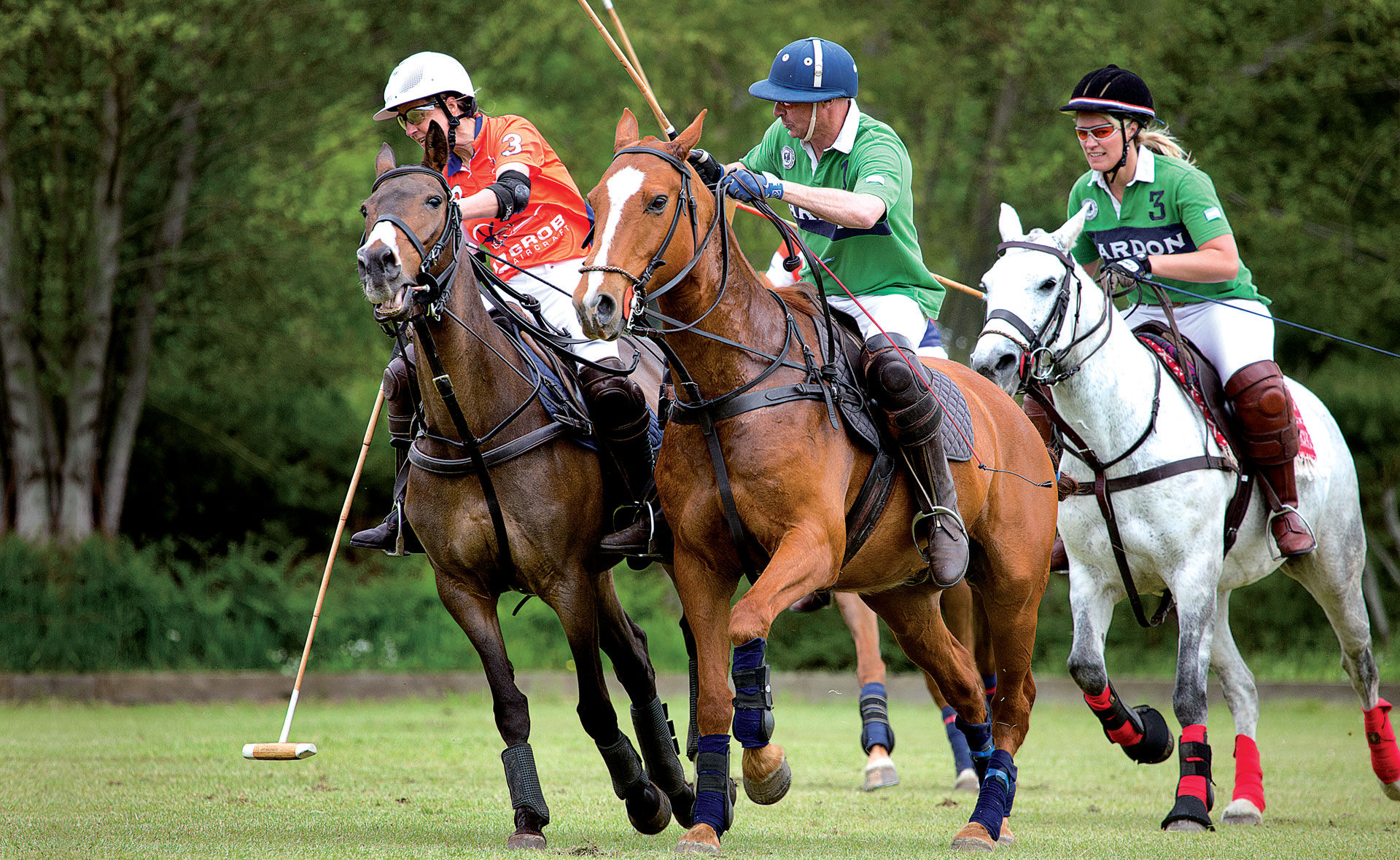Passion, glamour and fun: the Polo Club of Rome boasts a noble sporting tradition, proud of the purity of its origins.

Immersed in a green oasis, a few steps from the Monti Parioli district but far enough from the chaos of the city, the Roma Polo Club is the oldest Italian polo club. Although its deed of constitution dates from 1953, the club was founded in 1930, when the Roman authorities handed over the five hectares of land at Acqua Acetosa with a small wooden house. With the passing of the years, and thanks to the contribution of the various chairmen that have held office until the present incumbent, the lawyer Aldo D’Andria, the Roma Polo Club now sets the stage of the most important tournaments, such as the Italian Championship (from the 3rd to the 13th of May), now being hosted for the third year running.
The game of the pole has very ancient origins, which date back to the 6th century BC, when Darius the king of Persia took it with him to India. Over the centuries, the pole was used by the Cavalry to provide the soldiers with exercise. Today, attending a polo match is the equivalent to watching an ancient cavalry engagement, in which the movements of the sabre are replaced by those of the mallet. And glorious history, which is reflected in the exclusive combination of sport and social life.
Considered to be one of the most difficult sports in the world, polo is based on strict and complex rules. The ponies are of the Creole blood-line, originally from Argentina, currently the leading country of this sport. These are docile animals, well suited to working in perfect harmony with the player on the field, encouraging movement. But polo is also a formative discipline. «For this reason», says Chairman D’Andria, «coming to this sport from an early age is very important for physical and psychological development».
The exclusivity of this sport almost hangs in the air, when visiting the stables with their timeless charm, or relaxing in the Club House, the beating heart of the social life of the club and custodian of memorabilia, trophies and vintage photos. However, Chairman D’Andria is keen to point out that the club «is so exclusive, but also endowed with a strong sense of belonging and respect for traditions, which allows us to enjoy a family atmosphere, thanks to a limited number of members (around 200)».
The club has two playing fields, one for training and one for competition, the latter considered to be one of the best in the world because it is covered with Tifton grass, whose cobweb roots do not allow the clods to fly up when the ponies pass by. In addition to the playing fields, there are stables, which accommodate almost 200 horses, riding tracks in sand and chippings, a covered riding school, a restaurant and a swimming pool. The numerous courses for beginners or advanced, and the prestigious tournaments, such as the Coppa Duca d’Aosta, which are held annually, complete the proud programme of the club.
